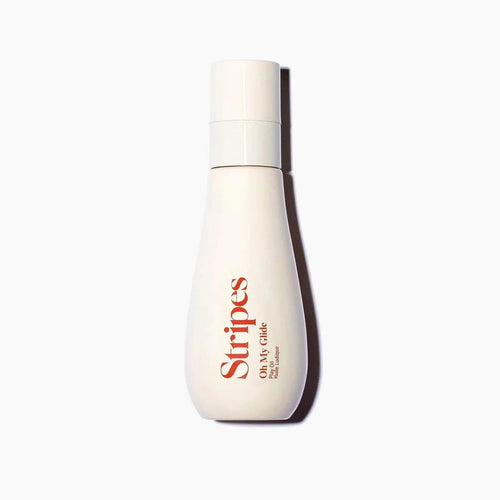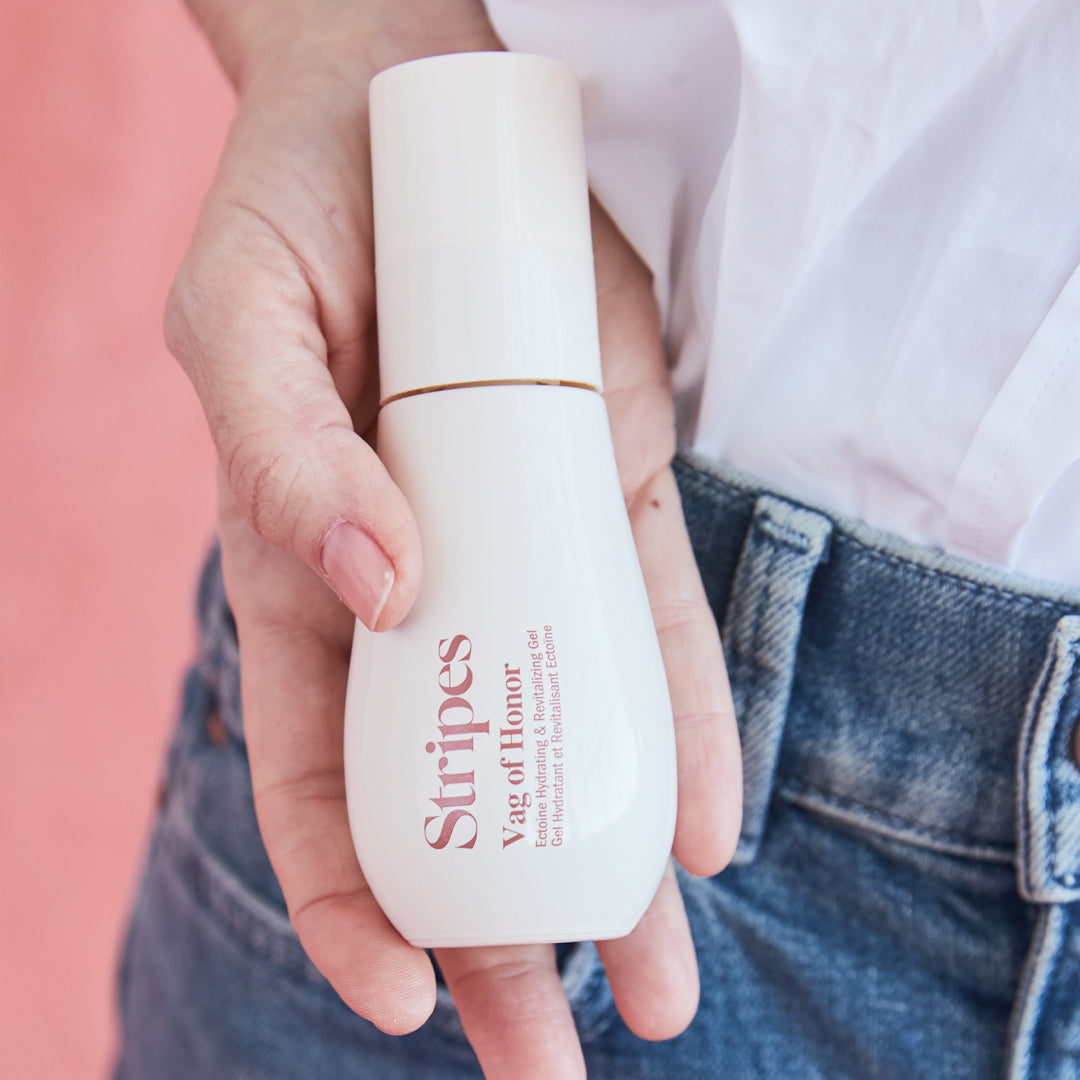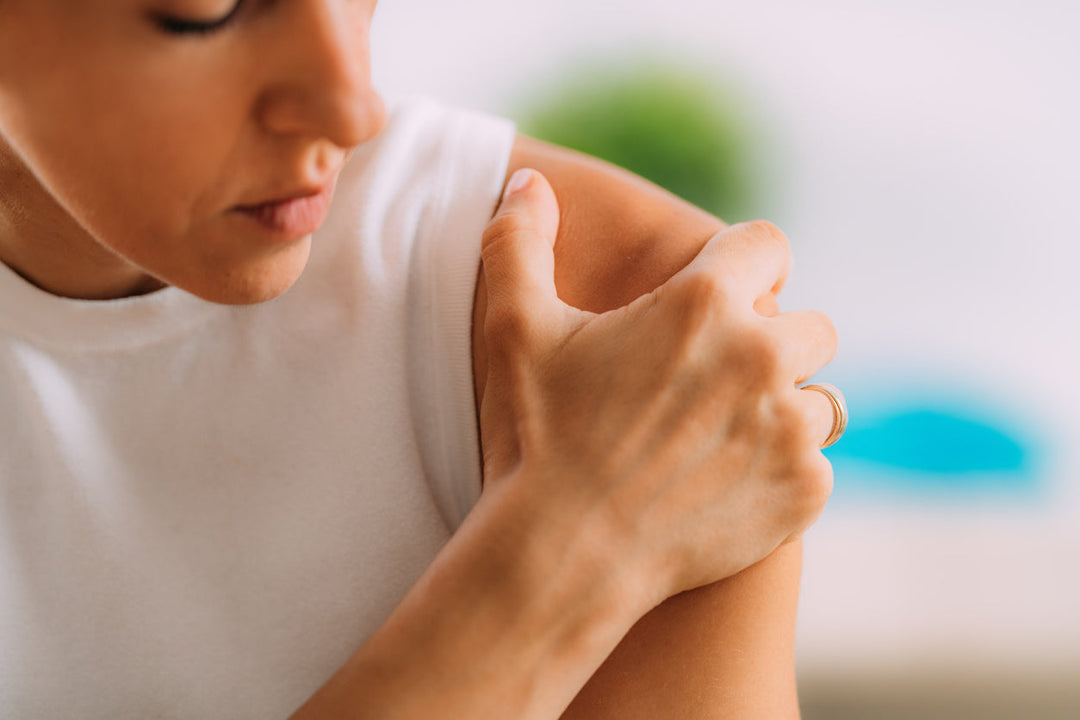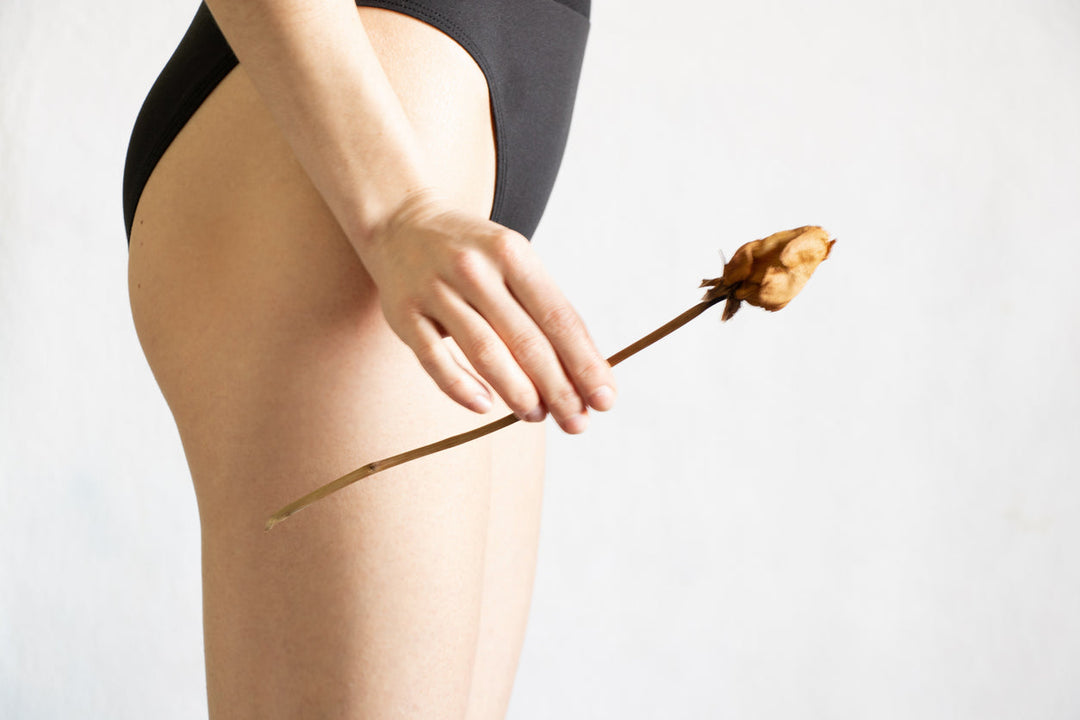Stressed Skin: Tips to Stay Calm and Glowing
Stress is a normal human response to threatening circumstances, including the huge changes happening in your body during peri/menopause. When you perceive a threat in your environment, your sympathetic nervous system kicks into gear and releases a hormone called cortisol, which incites that amped-up feeling you get when you’re on edge. The burst of extra energy that came in handy for your ancestors when they needed to fend off a sabertooth tiger can also equip you to get through a terrible day at work. In the short term, the stress response is a good thing.
But when the threat isn’t resolved — when you wake up every day feeling like a stranger in your own body, for example — that amped-up sensation isn’t so helpful. Ongoing exposure to cortisol incites inflammation throughout your body, which in the long term can have pretty significant effects on your well-being and your whole body — including your skin.
Skin conditions caused by stress and anxiety
Unresolved inflammation can contribute to a weakened immune system, a slowed-down metabolism, and even chronic pain. It can also mess with your skin. “When the body is inflamed, the skin gets red, sensitive, and less resilient to things it’s exposed to, whether sun or makeup,” says Sarvenaz Zand, M.D., a board-certified dermatologist in Mill Valley, California.
Other factors, like shifting hormones, can compound the problem, as can all the normal but unhealthy ways we often cope with stress, like consuming more alcohol or processed foods. The result? Increased oil production, clogged pores, and acne. If you have eczema, you might also notice annoying flare-ups during high-stress periods.
How to deal with stressed skin
Whether your skin concerns stem from hormones, stress, or a combination of both, it’s absolutely possible to restore your glow and your confidence. Here’s what you need to know about dealing with stressed-out skin, according to a dermatologist.
Topical treatments
You may have tried everything in your skincare product lineup and even a few natural DIY remedies. Dermatologist-approved treatments are also out there and ready to help you battle stress acne.
Stress pimples are pretty ferocious, but there are a few things even they can’t conquer. Topical products containing salicylic acid and retinol can help treat stress acne. Salicylic acid unclogs pores, while retinol can help accelerate the skin’s natural exfoliation process, bringing new, healthy cells to the surface (if you're in peri/menopause, you may want to steer clear of any products with benzoyl peroxide in them).
When used correctly (and not at the same time), these ingredients can help reduce stress acne. If you’re not sure which treatments are best for you or are allergic to any of the ingredients listed above, talk to a dermatologist and get a professional opinion.
Exercise
Maybe your acne isn’t so aggressive that it needs prescription-strength treatment. Perhaps you experience stress pimples only once in a blue moon. If you’re leaning away from adding topical creams to your skincare routine, what else can you do to reduce stress acne? Well, you can start by reducing your stress levels.
One way is by exercising — it does wonders for the body and especially the skin. When you exercise, your body releases stress-reducing endorphins. These chemicals interact with receptors in your brain that produce feelings of calm and satisfaction and reduce feelings of pain. By exercising, you are increasing your endorphin levels and lowering your cortisol levels. When cortisol levels are low, they can’t send signals to your skin to increase its inflammatory response. So you feel more chill.
Worried about sweating? Don’t. Sweat itself does not cause acne — it consists almost entirely of water and is only released from your skin to cool your body down. However, if left on the surface, sweat can attract bacteria to your skin and cause buildup. So once you finish exercising, make sure to shower and scrub your skin with a good soap.
Yoga and meditation
Many think that yoga and meditation are only meant to clear the mind and improve flexibility, but both these activities have some stress relief benefits, too. Yoga and meditation share one stress relief technique, and that’s deep breathing. It may sound too simple to be true, but focusing just on your breath can do a lot for stress relief.
Breathing exercises work twofold: They lower your heart rate and increase oxygen levels in the blood. When your heart rate lowers and your blood carries more oxygen to the brain, your brain sends signals to the rest of the body that it’s time to relax. When this happens, your cortisol levels go down, and your body’s inflammatory response becomes steady.
So if you can take a few minutes of your day, meditate for a while or do a little yoga. Even if (actually, especially if) you have a busy schedule, take a few minutes for a simple deep breathing exercise, even from your desk. Your skin will thank you for the special treatment.
Extra sleep
It isn’t just your muscles that need repair at night — your skin does, too. Sleep deprivation is one of the most common contributors to stress and acne. When we sleep, our immune system naturally releases proteins called cytokines that help repair the damage done to our bodies earlier in the day. Certain cytokines are particularly helpful in reducing inflammation and fighting off infections, both of which are present in acne.
People who suffer from sleep deprivation conditions like insomnia can have a lower immune response and become more susceptible to infections and other illnesses. Sleep deprivation can also create a wave of hormonal imbalances that exacerbate acne. So if you’re not getting seven to nine hours of sleep a night, talk to your doctor about what you can do to get there and to help your skin heal.
Listen to your body
You can slap a cream on your skin, but remember: Stressed-out skin (or any symptom of stress, for that matter) is your body’s way of letting you know something’s not right. “If stress manifests on your skin, it may seem like a nuisance, but it’s actually your body saying it needs some extra care,” says Zand. “Acne is very visible and can be embarrassing, but the health consequences of not taking care of your body can be so much worse.”
So as you explore new skincare routines and ponder adding a workout to your schedule, also take time to listen to and honor your body, even if it means slowing down a bit. Over time you may notice your skin clear up and your menopause symptoms wane. But more importantly, you’re learning new ways to take care of yourself and, hopefully, protect your health long past midlife.
By Ashley Abramson
Ashley Abramson is a freelance writer primarily covering health, psychology, and relationships. She's been published in The New York Times, Washington Post, and The Guardian. She lives in the Milwaukee area with her husband and two young sons.











